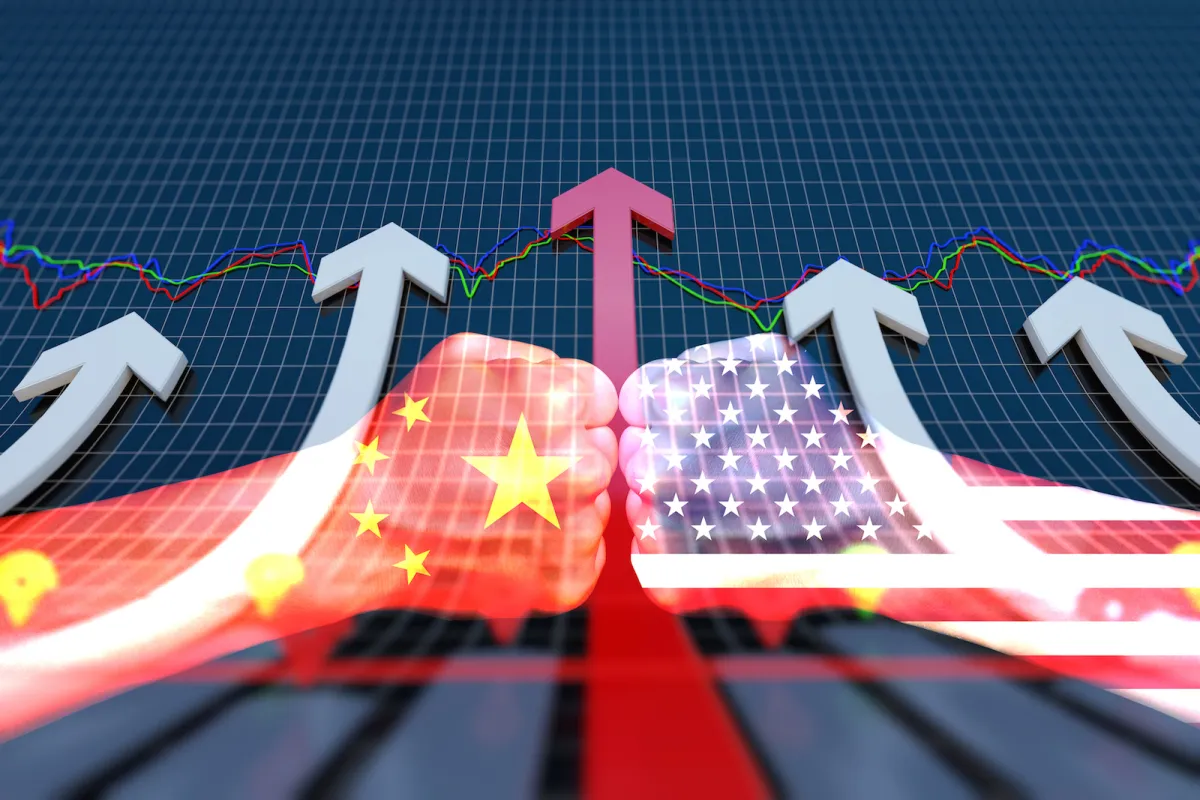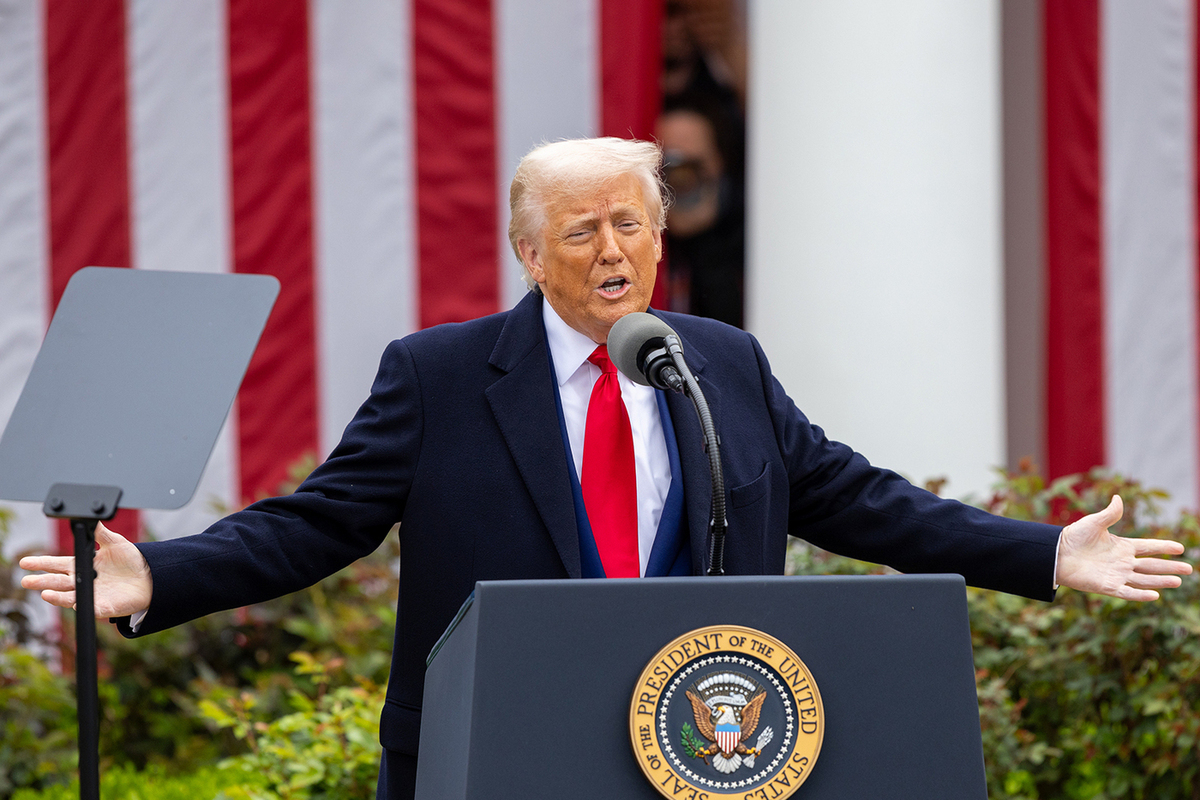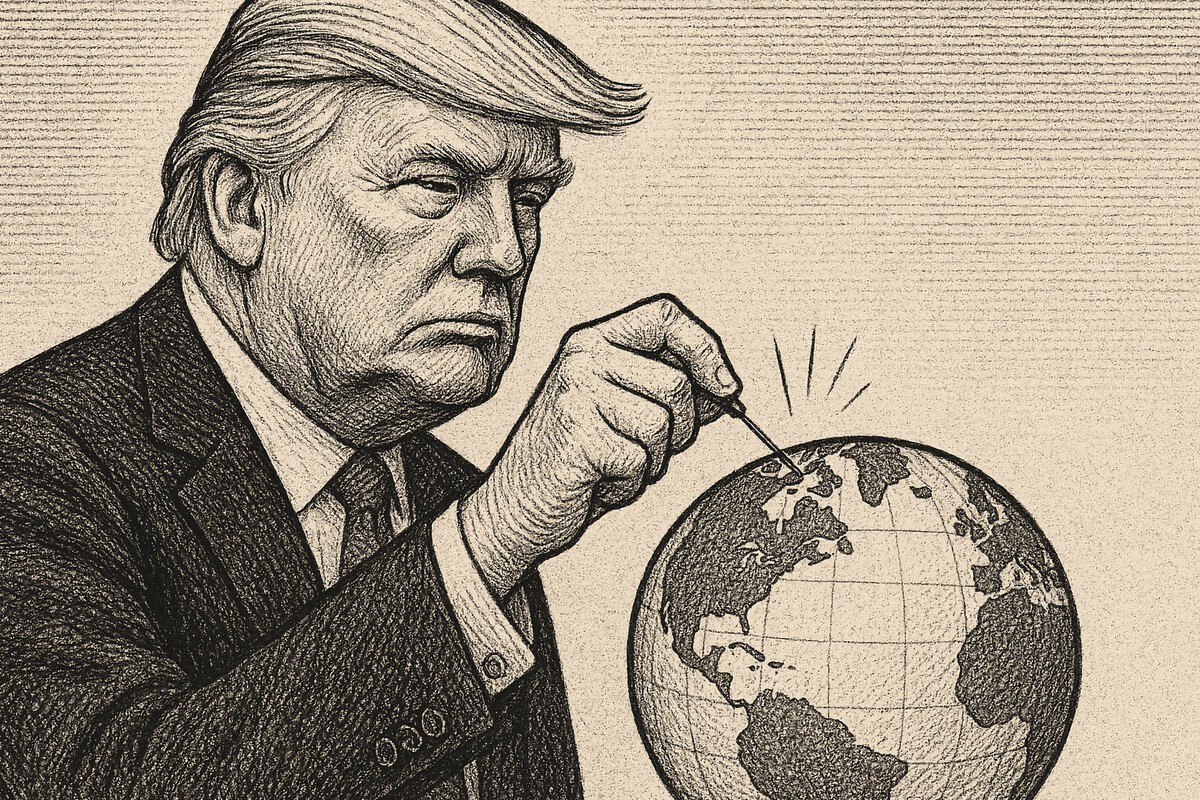Globalization as we know it is coming to an end. While the United States is retreating, China is building its own ecosystem. Some of these changes will be irreversible. The world never changes overnight, but sometimes there are turning points that we only recognize in retrospect. The fall of the Berlin Wall in 1989, the collapse of Bretton Woods in 1971 and the Lehman Brothers crisis in 2008 marked the end of one era and the beginning of another.
Today we are very possibly facing a similar moment. The phrase of the British politician Darren Jones, “globalization as we have known it over the last few decades has come to an end”, reported by Newsweek, may sound like a reactionary exaggeration in response to Trump’s tariffs, but it is not.

We are in something that goes beyond a trade war. It is the twilight of an economic order that has underpinned global prosperity for three decades. Tara Zahra explains it in The New York Times: it is a moment reminiscent of the collapse of the first era of globalization after 1913, when the value of global exports fell from 14% to 6% of the world economy.
The United States was the main architect of this system, but it has become its own biggest destroyer. The country that leveraged the virtues of free trade to grow now applies the same base tariff of 10% to both its democratic allies and regimes such as the Taliban. In fact, we have higher tariffs in the European Union than in North Korea.
It is not just the capricious policy of a single president, but the final manifestation of a long process. As Zahra documents, the warning came in 1999 with those anti-globalization protests in Seattle that were replicated in various parts of the world. In our case it was in Barcelona. Tens of thousands of protesters against the WTO. That intensified with the 2008 crisis and the pandemic completed this cycle: our supply chains were more fragile than we thought. The world was already fragmenting before Trump’s return to the White House.
What is alarming is what is happening on the other side of the Pacific. China is not lamenting over nothing or waiting for better times with stoic resignation, but is actively building its own independent economic sphere. The case of Huawei is exemplary: it is not building bridges, it is digging trenches. Its strategy is no longer to compete, but to create its own parallel and self-sufficient ecosystem.

Beijing, meanwhile, has been preparing its countermeasures to Trump’s tariffs, from raising its own to banning American films. These are not just defensive responses, but steps in a long-term strategy to reduce its exposure to and dependence on the West. Beijing is creating its technological, but also its financial and commercial, ecosystems. Within our means, in the EU we are also looking for the box of plasters. An era of independent islands is beginning.
Some changes may be reversed when Trump leaves office and the next one takes over, but others will be permanent. Once broken, trust is not easily restored. What happened to Huawei and others in 2019 was a lesson burned into the mind: dependence on any market (especially the US) is a vulnerability.
Pranesh Narayanan of the London-based Institute for Public Policy Research explains this on NBC News: “The decisions [companies] make as a result of this are going to reshape global trade.” The result will be a more fragmented, more redundant and, paradoxically, less efficient global system than the one that has emerged from globalization.
Aurélien Saussay, of the London School of Economics, anticipates that the price to be paid for this “deglobalization” will be passed on to consumers in the form of higher prices and a smaller variety of products on offer.
Many of the pieces that have built the imperfect framework that has given rise to the greatest global prosperity in history are being undone. Just when AI, climate change and demographic complications should demand more cooperation, not less.
The pendulum is swinging back towards closed borders and autarchies, to a certain extent. China wants to be self-sufficient, the United States is looking for something similar and the EU, which was focused on other things, is beginning to wonder what it has left to protect.
Now it remains to be seen what will happen in the future: not whether globalization can be saved — it seems very difficult to undo certain steps — but what we will build on its remains.









